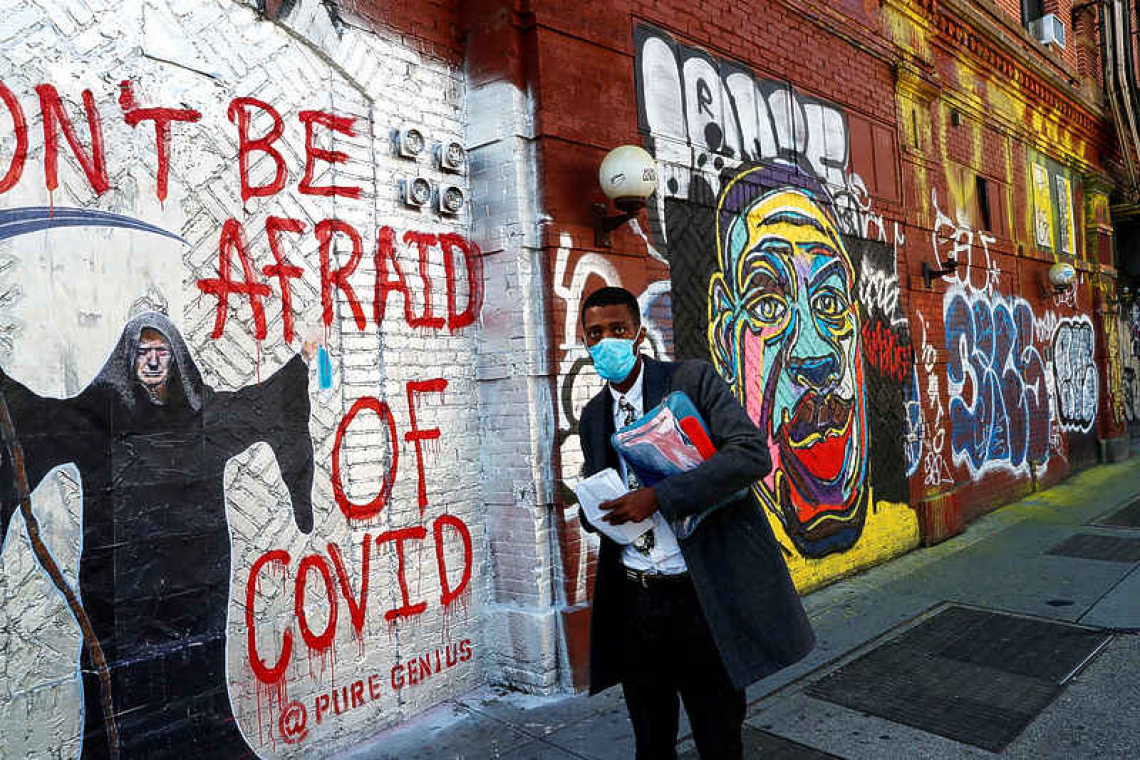WASHINGTON--New York Governor Andrew Cuomo on Thursday dismissed as "irrelevant" a U.S. Supreme Court decision blocking coronavirus restrictions imposed on religious gatherings, saying it related to specific areas that were no longer considered at high risk.
The court, which has a 6-3 conservative majority, voted 5-4 late on Wednesday in favour of requests by the Roman Catholic Diocese of Brooklyn and two Orthodox Jewish congregations for an injunction to block the restrictions from being enforced.
The order marked one of the first consequential actions on the court involving President Donald Trump's new appointee, conservative Justice Amy Coney Barrett, who cast a deciding vote in favour of the religious groups. Conservative Chief Justice John Roberts dissented along with the court's three liberals.
"HAPPY THANKSGIVING!" Trump tweeted on Thursday in response to the decision.
The case stemmed from an Oct. 6 decision by Cuomo, a Democrat, to shut down non-essential businesses in targeted areas where infections have spiked, including some neighbourhoods in Brooklyn. New York has categorized areas where coronavirus infections are increasing in severity as yellow, orange or red. Under Cuomo's restrictions, houses of worship in red zones could remain open at 25% capacity up to a maximum of 10 people.
In a call with reporters on Thursday, Cuomo said the high court's ruling would have no impact on the state's virus control efforts because the red zone status for the area in question had expired last week. "It's irrelevant from any practical impact because the zone that they were talking about has already been moot," the governor said. "I think this was really just an opportunity for the court to express its philosophy and politics."
He also pointed out that the decision, which now goes to the 2nd U.S. Circuit Court of Appeals, is not final and did not appear to affect New York state's rules for mass gatherings.
The houses of worship argued the limits imposed by the state violated religious freedoms protected by the U.S. Constitution’s First Amendment, and that their facilities were singled out for more stringent restrictions than essential businesses, such as food stores. The Orthodox congregations Agudath Israel of Kew Garden Hills and Agudath Israel of Madison, as well as nationwide Orthodox Jewish group Agudath Israel of America, requested the injunction.
A federal judge in Brooklyn rejected separate requests made by the religious groups on Oct. 9. The New York City-based 2nd Circuit declined emergency requests filed by both sets of challengers on Nov. 9.
In two previous cases this year, the court, in 5-4 votes, turned away similar requests by churches in Nevada and California. Those votes occurred before the death of Justice Ruth Bader Ginsburg, and saw her and the other three liberal members of the court joined by Roberts in the majority.







